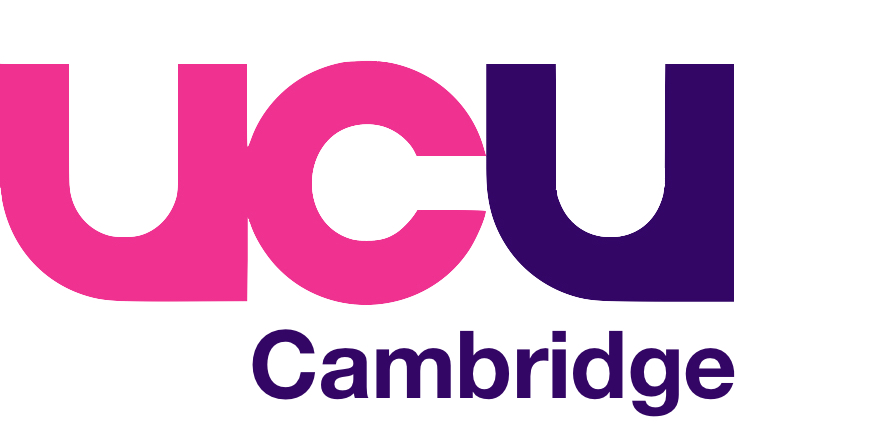Passed at CUCU EGM on 27 July
Cambridge UCU notes
1. That the University is currently in negotiations with several partners in UAE over a
£400m partnership agreement which involves substantial long term investment by the
UAE partners in University posts, research funding and eventually the creation of a
physical joint Cambridge-UAE Institute.
2. This collaboration is envisaged as spanning multiple Schools including CSAH,
CSHSS and Technology, as well as other university institutions such as Cambridge
Assessment and The Press, the Library and the Fitzwilliam Museum
3. The University has recognised that there are a number of risks associated with this
project and acknowledges that among these are threats to academic freedom posed
by the UAE authorities’ treatment of researchers and potential reputational damage
to the University as a result of association with these and other violations of human
rights.
4. The University acknowledges that there is also a risk of reputational damage
associated with receiving funding from a major petroleum producing state despite
having recently made commitments to end partnerships with and investment in fossil
fuel producers.
5. UAE government policies have been widely condemned by leading human rights
organisations as directly or indirectly causing serious violations in the following areas:
civil and political rights, academic freedom and freedom of expression, women’s right
and LGBTQ+ rights, labour and trade union rights (including the systemic use of
forms of forced labour).
6. That the UAE’s national wealth is almost entirely derived from fossil fuels and that the
state-owned Abu Dhabi National Oil Company was identified in a recent analysis by
the Climate Accountability Institute and the Guardian as one of the top 20 companies
bearing historic responsibility for the climate crisis by fuelling fossil fuel consumption.
Cambridge UCU believes:
1. That the proposed partnership between the University and UAE raises major risks of
direct complicity in human rights violations in relation to academic freedom and
freedom of expression, gender, sexuality and labour rights, including the rights of its
own staff and students, those employed by subcontractors and partners and other
residents, citizens and visitors to UAE.
2. That the University has a legal duty to ensure a safe working environment for all its
staff and that the proposed collaboration risks creating conditions where the
University is unable to carry out these duties because it has chosen to partner with
the government of a state which has enshrined major violations of human rights in
law and embedded them into the day-to-day practice of a wide range of public and
private institutions in education, policing, construction, industry and services.
3. That accepting funds from the UAE government, which as a state fossil fuel producer
bears historic and ongoing responsibility for the devastation of climate change,
makes a mockery of the University’s stated commitment to divest from the fossil fuel
industry.
4. That accepting these funds also risks complicity in the UAE government’s efforts to
launder its own reputation in the light of widespread condemnation of its policies of
repression inside UAE and its role in fueling conflict in the wider region, especially in
Yemen where UAE forces may have engaged in war crimes according to the United
Nations and have contributed to the famine and epidemics which have had
devastating effects on the civilian population.
Cambridge UCU resolves:
1. To write publicly to the VC calling on the University to withdraw from the proposed
partnership with UAE
2. To seek urgent clarification from the University about how it proposes to comply with
its legal duties should this partnership proceed, in relation to: a. upholding academic
freedom for staff and students b. protecting staff and students from discrimination
and harassment c. modern slavery / forced labour
3. To contact the other campus trade unions and the Student Union in order to propose
a joint approach to management over this issue.
4. To organise activities highlighting our opposition to this partnership such as a protest
or meeting in conjunction with the next climate strike on 27 September.
5. To work with Middle East Solidarity network to produce and circulate information and
educational material to members and the public evidencing our rejection of this
partnership.
